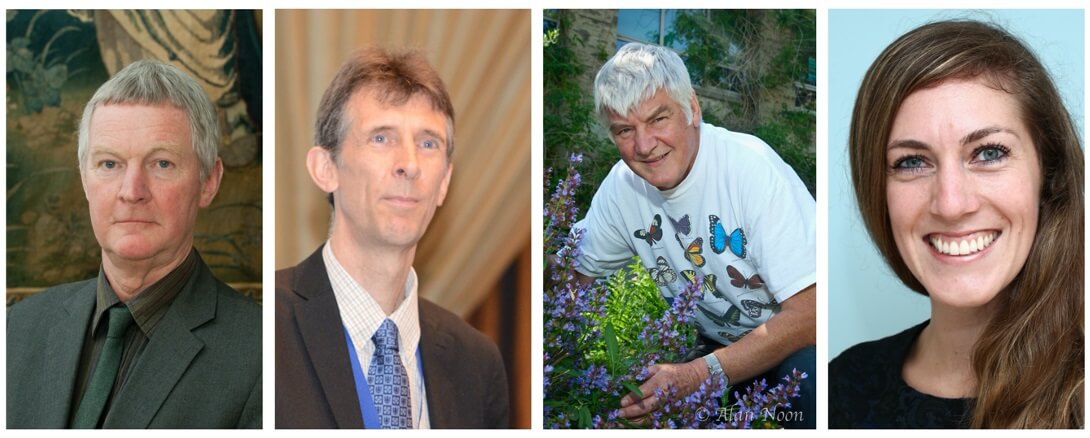InterAcademy Partnership call for global solidarity
Author(s):
Robin Fears
Peter F McGrath
Jeremy N McNeil
Teresa M. Stoepler

The COVID-19 pandemic presents extraordinary global challenges affecting individuals, families, communities, health services, and economies. Research is already helping to achieve significant progress in identifying what is different about this coronavirus and its unfolding epidemiology. Research provides the knowledge to accelerate the development of novel interventions – diagnostics, therapeutics and vaccines – and to guide the effective deployment of the public health measures already available.
Among emerging challenges has been the weak commitment by many to coordinate action and share resources in the spirit of global solidarity. A recent Communique from the InterAcademy Partnership, IAP, a network of more than 140 academies of science, engineering and medicine worldwide ( http://www.interacademies.org/59487/IAP-Communiqu-on-COVID19) highlights the value of international scientific and other collaborations in previous serious infectious disease outbreaks. For example, the Communique discusses HIV, SARS, Ebola, avian influenza, and other global threats such as drug-resistant tuberculosis and antimicrobial resistance. Collectively, for the global public good, we must apply lessons from what worked and didn’t work in responding to previous threats as well as learn from our accumulating experience with COVID-19 to ensure that we act on a global scale.
Canada, in responding to the COVID-19 threat (https://www.canada.ca/en/public-health/services/diseases/2019-novel-coronavirus-infection.html?topic=tilelink) has committed to collaborative scientific and public health initiatives, such as rapid diagnosis and acceleration of efforts for the first-in-human clinical trials (https://www.canada.ca/en/public-health/services/diseases/2019-novel-coronavirus-infection/canadas-reponse.html?topic=tilelink#c). By the end of March, as the result of funding from a variety of national and provincial agencies, nearly 100 grants amounting to $54 million Canadian have been funded. The Royal Society of Canada has initiated a multidisciplinary Task Force on COVID-19, mandated to rapidly develop informed responses to the broad societal challenges Canada may face while responding to and recovering from COVID-19.
These partnerships are welcome and can also help with the sharing of information and resources and to inform objectives for the broader, coordinated, strategy worldwide for better preparedness and responsiveness. The behaviour of some governments announcing public health policy actions at variance with WHO advice without publishing their evidence to substantiate such initiatives, aggravates the problems caused by fragmentation in knowledge generation and disconnects in what should be a global COVID-19 strategy. Collectively, we also need to address problems arising from antagonism between countries relating to perceived origins of the virus, conspiracy theories, and the stigmatization of minority groups. This is no place – or time – for narrow commercial or national competitiveness and self-interest at the expense of others.
Deficits in international collaboration will be particularly deleterious for those who are most vulnerable. IAP is now actively exploring with its member academies how to support them in using and sharing trusted evidence in responding to the pandemic. Many low- and middle-income countries in Africa, Asia, and the Americas have yet to report many COVID-19 cases (https://experience.arcgis.com/experience/685d0ace521648f8a5beeeee1b9125cd) but are now taking steps to ramp up their preparedness to detect and cope with COVID-19. In addition, it is essential for all countries to be able to contribute to the prioritization of research choices on novel interventions, and to share in equitable access to innovation and other public health measures worldwide. IAP urges a more powerful role for WHO in ensuring this equitable access, and also recognizes the importance of supporting every country in communication with WHO in an open and responsible manner to support public health security worldwide.
In building critical mass to tackle COVID-19, IAP recommends three main areas for coordinated and sustained action:
All countries to reaffirm their commitment to international collaboration based on whole-of-government and whole-of-society approaches.
This priority has multiple consequences for: partnerships in research and innovation that include participation in clinical trials to rapidly evaluate emerging therapies and, once developed, make them available worldwide; for optimizing supply chains; and for the implementation of standard public health practices. It is also essential to plan for and manage the implications of COVID-19 on the provision of health services more broadly and on other sectors essential for health, such as agriculture. Solidarity is also required in using the scientific evidence to devise options for developing herd immunity and restoring society without exposing vulnerable people to risk. Thinking further ahead, the world must also get ready to pursue objectives for decarbonizing the economy when economic growth returns.
Communicating validated information worldwide informed by the best scientific advice.
Robust evidence is essential to counter unproven assertions, prejudice and deliberate misinformation that risks disrupting civil solidarity and equity. The scientific community must join with others in promoting responsible, transparent and timely communication of credible evidence.
Ensuring the effort to work with and support countries with weaker public health frameworks
For example, IAP is acting through its global network to enable scientists in developing countries to draw on international and regional scientific evidence, across all disciplines and including that at the scientific frontiers, to advise their own policy makers and citizens. IAP is currently surveying member academies to identify their priorities for generating and using science – for advising policy, for driving innovation, and for engaging with the public – at national and regional scale. This information will be collated, analysed and rapidly shared.
Further detail on all these points is in the IAP Communique. IAP is also working with many others in developing a repository of open access web-based resources of curated information (for example, from academy members on http://www.interacademies.org/59479/IAP-academies-responses-to-COVID19). We conclude by reaffirming IAP’s commitment to promote the sharing of expertise and good practice to help catalyze the needed coordinated worldwide action, informed by the best scientific evidence.

